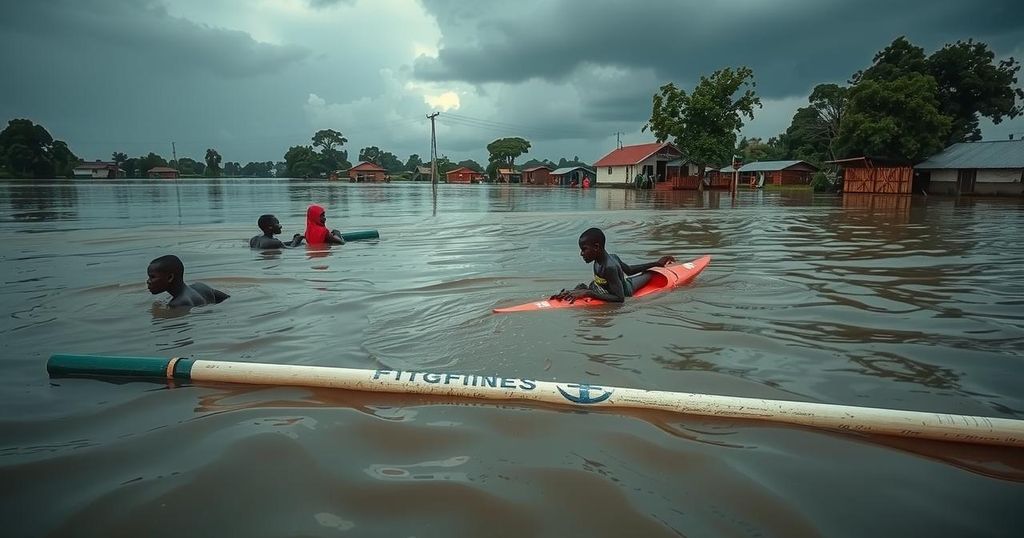Severe flooding in South Sudan has affected 1.4 million people and displaced over 300,000, with Jonglei and Northern Bahr el Ghazal being the hardest hit. The situation is worsened by a surge in malaria cases. OCHA reported assessments revealing additional displaced persons in Mangalla, exacerbating the ongoing humanitarian crisis.
South Sudan is enduring a severe humanitarian crisis as flooding has affected approximately 1.4 million individuals and led to the displacement of over 300,000 people, as reported by the United Nations. This catastrophic event has primarily impacted 43 counties and the Abyei Administrative Area, with Jonglei and Northern Bahr el Ghazal states being the most severely affected, accounting for more than 51 percent of those impacted. Recent assessments have uncovered an additional 1,720 individuals displaced due to flooding in Mangalla, Juba County, Central Equatoria State. Furthermore, this emergency has been compounded by a notable increase in malaria cases in several states, overwhelming medical facilities and worsening the conditions in flood-stricken areas.
Flooding in South Sudan has been exacerbated by climate change, resulting in annual disasters affecting hundreds of thousands of people. Since May 2024, unprecedented rainfall and the overflow of the Nile River have led to significant flooding, damaging homes and decimating livestock and crops. The challenges faced by the population are further intensified by the rising incidence of malaria, a situation detailed by the United Nations Office for the Coordination of Humanitarian Affairs (OCHA).
The ongoing floods in South Sudan have resulted in widespread displacement and a dramatic rise in malaria cases, challenging an already strained healthcare system. The impact is felt heavily in Jonglei and Northern Bahr el Ghazal, with over a million people affected. Urgent humanitarian assistance is critical to alleviate the suffering and address the health threats posed by the flooding.
Original Source: www.aninews.in







